As an industrial-organizational psychologist, I’ve witnessed firsthand how a Master of science in Industrial-Organizational Psychology can transform careers and workplaces. This specialized degree combines psychology principles with business practices to enhance workplace productivity and employee well-being.
I’m often asked about the value of pursuing this advanced degree, and the answer is clear: it’s becoming increasingly vital in today’s evolving workplace landscape. With organizations focusing more on employee engagement, talent management, and organizational development, I-O psychology graduates are in high demand. Companies are actively seeking professionals who can bridge the gap between human behavior and business success, making this field both rewarding and lucrative.
Key Takeaways
- A Master of science in Industrial-Organizational Psychology combines psychology principles with business practices, preparing professionals to enhance workplace productivity and employee well-being
- The program typically requires 36-42 credit hours and can be completed in 12-18 months (full-time) or 24-36 months (part-time), with both online and on-campus options available
- Career opportunities include corporate HR positions ($75,000-$160,000), consulting roles ($150-$300/hour), and research positions ($65,000-$175,000), offering strong return on investment
- Program costs range from $21,000-$45,000 at public universities and $35,000-$65,000 at private institutions, with various financial aid options available
- Admission requirements include a bachelor’s degree with minimum 3.0 GPA, GRE scores, relevant work experience, and prerequisite psychology coursework
Master of Science in Industrial-Organizational Psychology
Industrial-organizational psychology applies psychological principles to enhance workplace performance efficiency. I’ve observed how this field bridges the gap between scientific research methods and practical business applications through systematic study of human behavior in organizations.
The core focus areas include:
- Analyzing employee behavior patterns in different work environments
- Developing data-driven high volume recruiting strategies
- Creating effective training programs based on learning principles
- Implementing performance measurement systems
- Designing compensation structures that align with organizational goals
Here’s how I-O psychology impacts key business metrics:
| Business Area | I-O Psychology Impact | Average Improvement |
|---|---|---|
| Employee Retention | Reduced turnover through engagement programs | 25-35% |
| Productivity | Enhanced performance through behavioral interventions | 15-20% |
| Recruitment | Improved candidate quality through validated assessments | 40-50% |
| Training ROI | Increased learning retention through scientific methods | 30-40% |
My expertise extends to these specialized domains:
- Selection Systems: Creating validated hiring assessments
- Job Analysis: Documenting essential functions for role optimization
- Organizational Development: Implementing culture change initiatives
- Leadership Development: Designing evidence-based management training
- Employee Assessment: Measuring performance through objective criteria
The field combines quantitative research methods with practical applications to solve workplace challenges. I apply statistical analysis to measure program effectiveness while implementing solutions that enhance organizational performance.
Career Opportunities With an I-O Psychology Degree
A Master’s in Industrial-Organizational Psychology opens diverse career paths in multiple sectors. I’ve observed how this specialized degree creates opportunities in corporate environments, consulting firms, research institutions.
Corporate HR and Talent Management
In corporate settings, I-O psychologists lead strategic HR initiatives through data-driven approaches. Organizations like Google, Microsoft, Amazon employ I-O psychologists in roles including:
- Talent Acquisition Manager ($95,000-$145,000 annual salary)
- Employee Development Specialist ($80,000-$120,000)
- Compensation Analyst ($75,000-$110,000)
- HR Analytics Manager ($100,000-$160,000)
Consulting and Training
I-O psychology consultants provide specialized expertise to multiple organizations simultaneously. Key consulting opportunities include:
- Executive Assessment Consultant
- Leadership Development Trainer
- Change Management Specialist
- Performance Management Advisor
- Organizational Development Consultant
| Consulting Role | Average Project Fee Range |
|---|---|
| Executive Assessment | $15,000 – $50,000 |
| Leadership Training | $5,000 – $25,000 |
| Change Management | $20,000 – $100,000 |
Research and Academia
Research positions combine academic inquiry with practical applications:
- Research Scientist at corporations ($85,000-$130,000)
- University Professor ($70,000-$120,000)
- Research Director at consulting firms ($110,000-$175,000)
- Government Research Analyst ($65,000-$95,000)
- Publishing research findings in peer-reviewed journals
- Conducting workplace behavior studies
- Developing assessment tools
- Analyzing organizational effectiveness metrics
- Creating evidence-based intervention strategies
Core Curriculum and Course Requirements
The Master of Science in Industrial-Organizational Psychology curriculum combines advanced statistical analysis with organizational theory application. The program requires 36-42 credit hours across specialized courses focusing on workplace psychology research methods.
Research Methods and Statistics
Research methodology courses establish foundational skills in quantitative analysis essential for evidence-based practice. The curriculum includes:
- Advanced statistical techniques including multivariate analysis ANOVA MANOVA regression
- Research design principles for workplace studies field experiments surveys
- Statistical software proficiency in SPSS R SAS
- Data visualization presentation using industry-standard tools
- Psychometric theory test construction validation methods
Organizational Behavior and Development
The organizational behavior component examines psychological theories in workplace contexts. Key courses cover:
- Group dynamics team performance optimization strategies
- Change management organizational culture assessment
- Leadership theory development coaching techniques
- Employee motivation engagement measurement systems
- Conflict resolution workplace communication strategies
- Job analysis competency modeling techniques
- Selection system design validation procedures
- Performance management assessment tools
- Training program development evaluation methods
- Compensation system design benefits analysis
- Succession planning talent management strategies
| Course Category | Credit Hours | Required Courses |
|---|---|---|
| Research Methods | 12-15 | 4-5 courses |
| Org Behavior | 12-15 | 4-5 courses |
| Personnel Psych | 12 | 4 courses |
Program Formats and Duration
The Master of Science in Industrial-Organizational Psychology program offers multiple flexible formats to accommodate diverse student needs. Each format maintains rigorous academic standards while providing different pathways to degree completion.
Online vs On-Campus Options
Online programs deliver coursework through virtual learning management systems with synchronous video conferences and asynchronous discussions. On-campus programs feature face-to-face instruction with direct faculty interaction in traditional classroom settings. Online formats include virtual lab simulations for research methods training while on-campus programs provide hands-on experience with assessment tools. Both formats require 36-42 credit hours with identical curriculum requirements focusing on organizational behavior analysis techniques.
Full-Time vs Part-Time Study
Full-time students complete the program in 12-18 months by taking 9-12 credits per semester. Part-time enrollment allows completion in 24-36 months with 3-6 credits per semester while maintaining career obligations. The credit distribution includes:
| Study Format | Credits per Semester | Total Duration | Total Program Credits |
|---|---|---|---|
| Full-time | 9-12 credits | 12-18 months | 36-42 credits |
| Part-time | 3-6 credits | 24-36 months | 36-42 credits |
Each format integrates applied projects real organizational case studies regardless of the chosen timeline. Part-time students gain advantages from immediately applying coursework concepts in their current workplace settings while full-time students benefit from accelerated skill development through intensive study sequences.
Admission Requirements and Prerequisites
Academic Requirements
- Bachelor’s degree from an accredited institution with a minimum 3.0 GPA
- Completion of undergraduate psychology courses (15-18 credits):
- Introduction to Psychology
- Research Methods
- Statistics
- Industrial Psychology
- Organizational Behavior
Test Scores and Documentation
- GRE scores (minimum 150 verbal 150 quantitative)
- Official transcripts from all attended institutions
- Three letters of recommendation from academic or professional references
- Statement of purpose (500-1000 words)
- Current resume or CV
Professional Experience
- 2-3 years of work experience in:
- Human Resources
- Management
- Organizational Development
- Training Development
- Research experience through:
- Lab work
- Published papers
- Conference presentations
International Student Requirements
- TOEFL score (minimum 90) or IELTS score (minimum 7.0)
- Certified transcript translations
- Financial documentation
- Visa requirements
| Requirement Type | Minimum Standard | Preferred Level |
|---|---|---|
| GPA | 3.0 | 3.5+ |
| GRE Verbal | 150 | 155+ |
| GRE Quantitative | 150 | 155+ |
| Work Experience | 2 years | 3-5 years |
| Psychology Credits | 15 credits | 18+ credits |
- Fall admission: February 1
- Spring admission: October 1
- Summer admission: March 1
- Early decision: December 1
Cost and Return on Investment
A Master’s in Industrial-Organizational Psychology program costs between $21,000 to $45,000 in total tuition fees at public universities and $35,000 to $65,000 at private institutions. Additional expenses include textbooks ($1,200-$1,800), technology fees ($500-$800) and research materials ($300-$600).
| Expense Category | Public University | Private Institution |
|---|---|---|
| Total Tuition | $21,000-$45,000 | $35,000-$65,000 |
| Textbooks | $1,200-$1,800 | $1,200-$1,800 |
| Technology Fees | $500-$800 | $500-$800 |
| Research Materials | $300-$600 | $300-$600 |
The return on investment for this degree manifests in competitive starting salaries and career advancement opportunities. Entry-level I-O psychologists earn $65,000-$85,000 annually, while experienced professionals command salaries of $100,000-$150,000. Consulting roles generate $150-$300 per hour.
| Career Level | Annual Salary Range |
|---|---|
| Entry-Level | $65,000-$85,000 |
| Experienced | $100,000-$150,000 |
| Consulting | $150-$300/hour |
Financial aid options include:
- Federal student loans with fixed interest rates
- Merit-based scholarships ($5,000-$20,000)
- Graduate assistantships covering 50%-100% of tuition
- Employer tuition reimbursement programs ($5,250 tax-free annually)
- Research grants ranging from $2,500-$10,000
- Enhanced leadership positions in Fortune 500 companies
- Independent consulting opportunities with multiple clients
- Research project contracts averaging $50,000-$200,000
- Speaking engagements generating $2,500-$5,000 per event
- Publication royalties from assessment tools development
How This Degree Transforms Careers
A Master’s in Industrial-Organizational Psychology opens doors to countless opportunities in today’s dynamic business landscape. I’ve seen firsthand how this degree transforms careers and creates positive workplace changes through evidence-based practices.
The combination of psychological principles with business applications makes graduates invaluable assets to organizations seeking to optimize their human capital. Whether you’re interested in consulting research or corporate roles the field offers competitive salaries and meaningful work.
I believe this degree is more than just an educational achievement – it’s an investment in a future where you’ll shape organizational success and employee well-being. With flexible program options and strong ROI potential it’s an excellent choice for professionals ready to advance their careers in workplace psychology.

